The world population keeps growing every day, and the energy sources are not growing at the same pace. The energy crisis also gets exacerbated due to traditional energy sources becoming scarce and expensive. At the same time, people are starting to worry more about how burning fossil fuels contributes to global warming and the destruction of the environment that we live in.
Solar power is a practical answer to these issues because it is a renewable energy source that can be used indefinitely and costs nothing to operate.
Energy from the sun can be used over and over again because it is a renewable resource. This renewable energy source has gained popularity in recent years because it is safe for the environment and can be used indefinitely.
The Ten Ways Solar Energy Can Benefit Homeowners
Solar energy offers many advantages for homeowners, including lowering electricity costs, raising property values, and promoting national energy independence. Let’s look into the many ways that homeowners can save money and the environment by enlisting the help of our star.
1. Lower Electricity Bills

Solar energy’s ability to lower monthly electricity costs is a major selling point for homeowners. The electrical appliances in a house can be run on solar energy generated by solar panels. Not only the homeowners can save money on those annoying electricity bills, but also lessen their impact on the environment.
Factors that influence monthly electricity costs include energy consumption, electricity rates in the area, and the time of day. Homeowners can significantly decrease their reliance on the grid by switching to solar power.
2. Home Value Appreciation
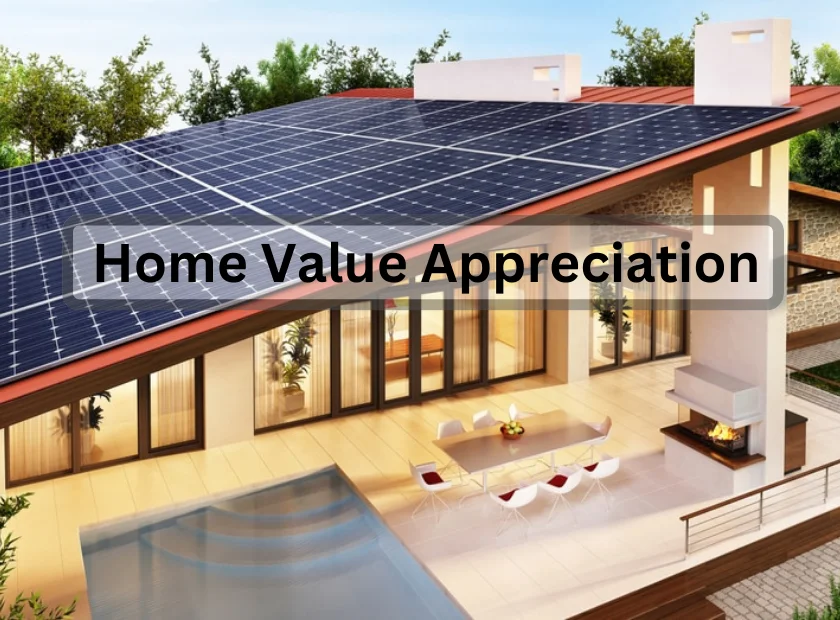
Solar energy also has the potential to increase a property’s value, which is a major plus for homeowners. Solar panel installation is often considered a worthwhile investment because of the increase in the home’s resale value. Potential buyers who care about doing their part for the environment will also be more interested in a house that has solar panels installed.
Several studies have demonstrated the solar panel’s beneficial effect on property value. A National Renewable Energy Laboratory study, for instance, found that homes outfitted with solar panels commanded a premium on the real-estate market. Solar panels can significantly increase a house’s value, sometimes by as much as $20 for each $1 saved on electricity bills.
The value of a home can be affected by the size of the solar energy system installed on it. Potential buyers interested in energy independence and reduced electricity costs may be more interested in a larger system. Homeowners should determine the ideal size of their solar energy system depending on the home’s energy needs and the amount of available roof space.
3. Federal and State Tax Credits

Governments around the world are keen to go green, and encourage their citizens to install solar panels through various financial incentives such as federal and state tax credits.
Up to 30% of the cost of installing a solar energy system is eligible for a tax credit from the federal government. Installing solar panels is also encouraged individually by many states through state-specific tax credits and other financial incentives.
There are requirements that must be met before a homeowner can claim these tax breaks. For instance, if you want to install a solar energy system, your home must be your primary residence and be owned by you. The efficiency and functionality of the solar power system must also be up to par.
A homeowner’s potential tax credit is related to the size of the solar energy system installed on their property. A higher tax credit may be available for a more substantial system. The size of a home’s solar energy system should be determined by the homeowner’s energy needs, the size of their roof, and any available tax credits.
4. Energy Independence
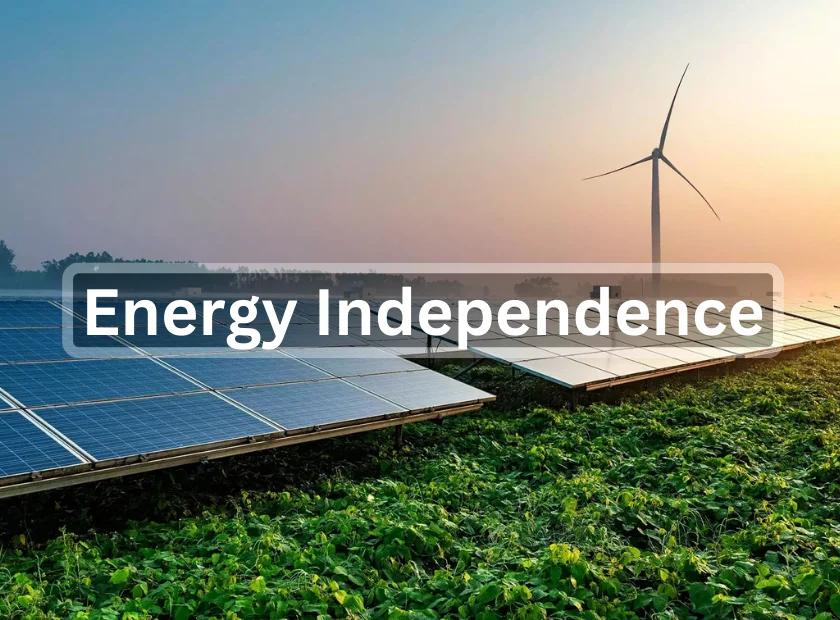
Probably the most common reason people choose to go solar, is the fact that they want to be independent of the grid, and masters of their own energy needs. And solar energy does just that: giving homeowners the freedom from utility companies.
Homeowners can reduce their dependence on the utility companies that control the grid by producing their own electricity. If you live in an area prone to blackouts, installing solar panels will ensure that you always have access to electricity at your home.
There are many advantages to going off the grid in terms of energy for homeowners. It can protect you from the inevitable rise in energy prices while helping you save money now. Knowing that one’s energy needs are being met regardless of outside influences can also provide a sense of security and peace of mind.
There are a number of factors that affect how much energy a solar energy system can produce, the most important of which are the size and orientation of the roof. When deciding on the size and type of solar energy system best suited for their home, homeowners should keep these things in mind. A professional solar energy installer can advise on the best setup for a household’s solar energy system.
5. Energy Security
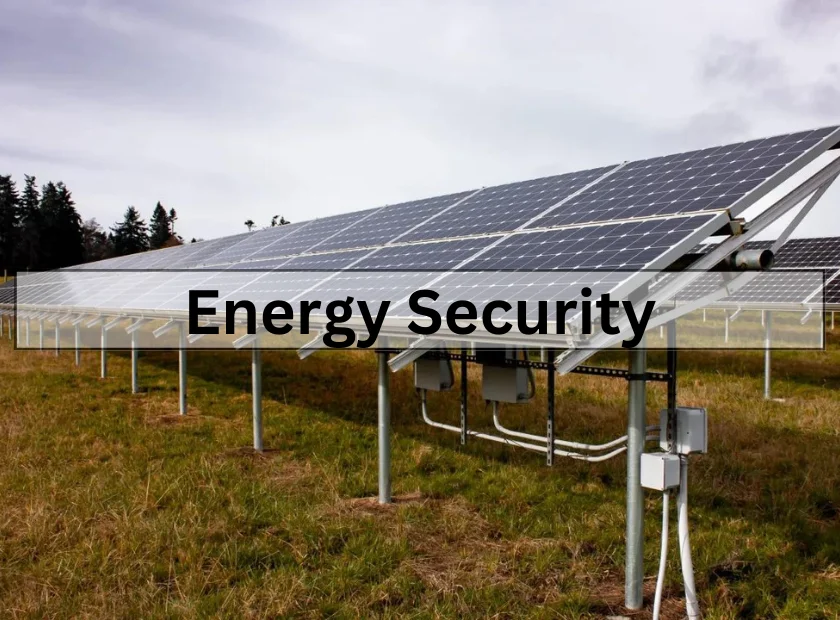
Solar energy not only gives homeowners freedom from utility rates, but also energy security. This is especially crucial in areas prone to blackouts as a result of weather events, human interference, natural disasters or other causes of grid disruption.
A solar energy system allows residents to generate their own electricity, reducing their reliance on the grid and providing a backup power supply in the event of a blackout.
With climate change, geopolitical instability, and cyberattacks on critical infrastructure on the rise, energy security has emerged as a pressing global concern. In addition to securing their own energy supply in the event of grid outages, homeowners who make solar energy investments contribute to a cleaner, greener energy future.
Several factors, including the number of hours of daily direct sunlight, affect how much energy a solar energy system can produce. The amount of sunlight a home receives throughout the year is a key factor in determining the optimal size and type of solar energy system. To generate the same amount of energy as a smaller system in a sunnier region, homeowners in areas with less direct sunlight may need to invest in larger or more efficient solar panels.
6. Can Work in Many Climates
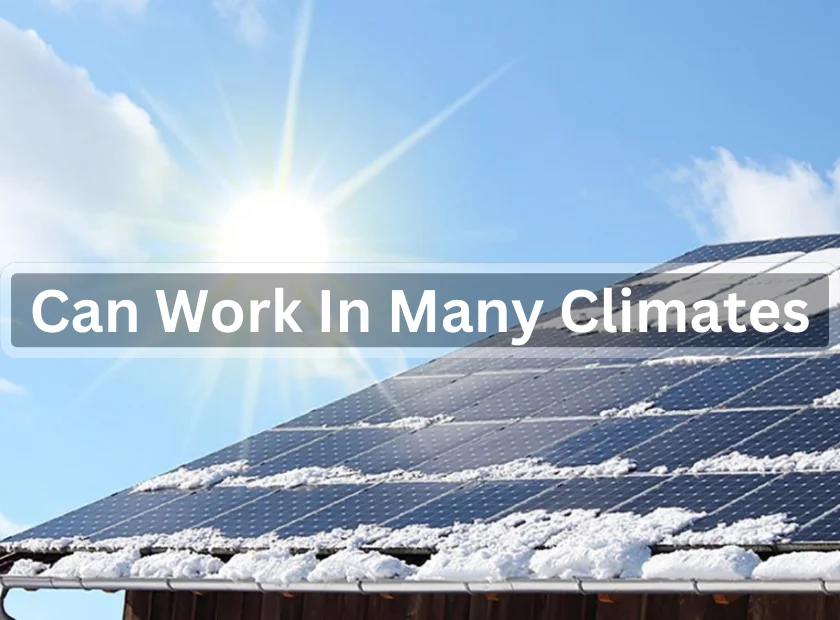
Solar energy systems are adaptable to many different climates. They perform admirably in either bright sunlight or overcast skies, making them a practical option in many geographical areas.
Although solar panels generate more power in places with abundant direct sunlight, they can still function even in diffusely lit environments. The amount of electricity generated by solar panels on a cloudy day is naturally lower than on a sunny day, but it is still possible.
The ability of solar systems to withstand high temperatures is a major advantage. They can keep on churning out power year-round because they’re built to withstand extremes of temperature.
7. Reduced Carbon Footprint
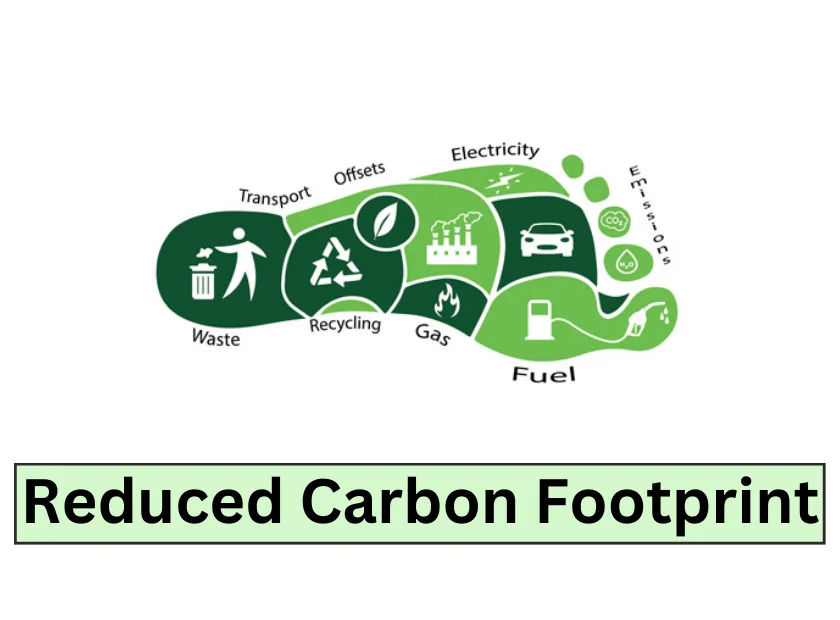
The ability of solar energy to decrease a household’s impact on the environment is one of its most appealing features. Solar power is a renewable, eco-friendly option that has zero impact on the environment in terms of carbon emissions or other air pollutants. By cutting back on fossil fuels and going solar, homeowners lessen their impact on the environment.
Solar energy is cleaner and more sustainable than conventional electricity generation methods like coal-fired power plants. Many harmful pollutants, such as sulfur dioxide, nitrogen oxides, and particulate matter, are released into the atmosphere as a result of coal-fired power plants.
8. Durability and Low Maintenance Costs
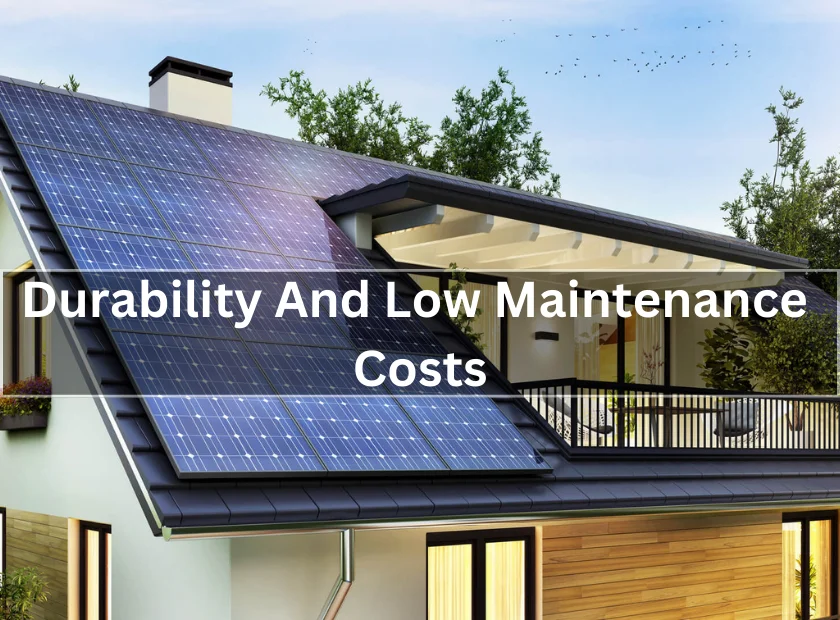
Solar power systems are built to last for many years with minimal upkeep. Solar panels don’t experience the same wear and tear as other home appliances because they don’t use any moving parts. This means they can serve you well for many years with little in the way of upkeep.
Most solar systems are also backed by warranties that will pay for any breakdowns or malfunctions. For homeowners looking to cut their energy bills and carbon footprint, this makes solar energy systems a low-maintenance option.
When compared to common household appliances like air conditioners and furnaces, solar energy systems have a much longer lifespan and require significantly less upkeep. Maintenance and repairs for heating and cooling systems can add up over time and add significant costs. In contrast, solar panels are made to last for decades with only routine cleaning being required.
The longevity and upkeep of a solar energy system can be affected by factors such as the size and pitch of a home’s roof. When deciding on the size and type of solar energy system, homeowners must take into account factors such as the orientation of their roof and the amount of available roof space. More energy can be generated from solar panels at the optimal angle and orientation, and their maintenance needs can be minimized.
9. Aesthetically Pleasing
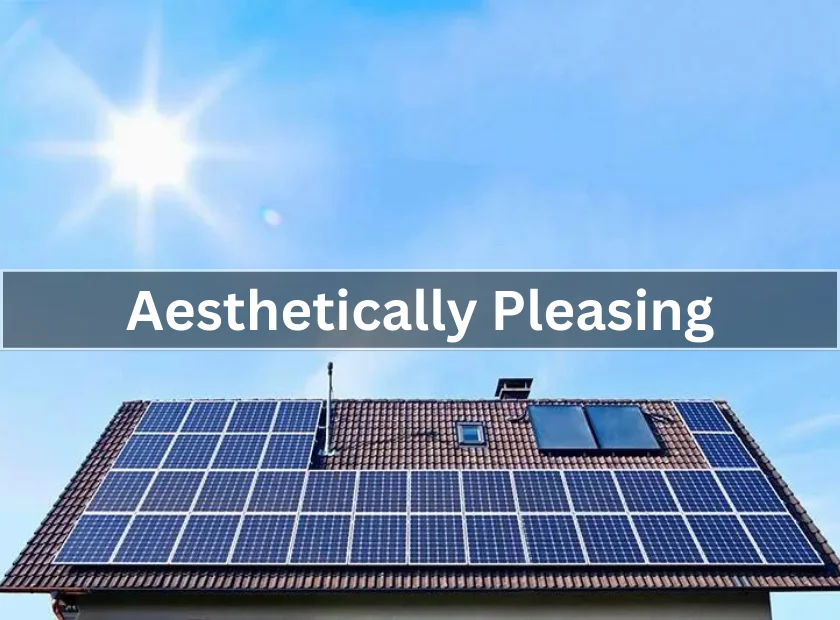
Some homeowners worry that adding solar panels will give their roof and unflattering look. Luckily, solar companies are well-aware of this concern, and modern solar energy systems are created with the intention of being visually appealing, and can improve the look of a home rather than detract from it. Some solar panels, for instance, are so slick and dark that they practically disappear into the roof of a house.
Some of these solar panels are styled to resemble common roofing tiles, so they won’t detract from the home’s overall appearance. There are also solar panels that have a minimal profile and are almost unnoticeable on the roof.
The size and angle of the roof are two factors homeowners should think about when planning the aesthetics of a solar energy system. Roofing space availability and roof pitch both play a role in how large a solar energy system can be installed.
Again, and it cannot be stressed enough, these things could be a bit too much for an average person to pull off themselves. So, in order to have a functional and visually appealing solar energy system installed on their property, homeowners should collaborate with a professional installer.
10. Contributes to Energy Independence of the Nation

By generating electricity from the sun, we can rid ourselves off of foreign oil and become more self-sufficient. Homeowners can generate their own electricity using solar panels, cutting their reliance on fossil fuel–powered conventional power plants.
Additionally, the demand for electricity from the grid decreases as more homeowners adopt solar energy systems. This has the potential to lessen the load on the power grid and make the grid more resilient in the face of disruptions.
For environmental and economic reasons, cutting back on fossil fuel use is essential. The extraction and combustion of fossil fuels have the potential to severely damage the natural world. Reduce your carbon footprint and help lessen the consequences of climate change by switching to renewable energy like solar.
Energy security and price stability can both be improved by decreasing reliance on fossil fuels. We can better manage our energy costs and lessen our exposure to price spikes and supply disruptions if we diversify our energy sources and use less foreign oil.
Conclusion
As we’ve seen, solar energy offers a wide range of advantages to residential users. It can help save money on electricity costs, increase the value of a home, qualify for tax credits, strengthen energy independence, lessen the environmental impact, require little in the way of upkeep, and look good to boot. Solar energy is a good option for homeowners who want to save money and help the environment because of these advantages.
Both homeowners and the country as a whole can benefit greatly from solar energy investments. We can help ensure a bright future for ourselves and future generations by shifting away from fossil fuels and toward renewable energy.
More affordable and efficient solar energy systems are on the horizon thanks to technological advancements and rising demand. The widespread adoption and easy availability of solar power has the potential to dramatically alter our approach to power generation and consumption.
FAQ’s
What are the benefits of solar energy?
· Lower energy bills
· Energy independence
· Environment friendly
· Increase in home value
Is solar power worth it for homeowners?
Yes. Investing in solar systems for your home might be expensive for once, but it pays dividends over the coming years by cutting down on electricity bills, increasing home value in the market, and providing energy independence among other benefits.
This article brilliantly outlines how solar energy can benefit homeowners in numerous ways. A must-read for anyone considering solar power!